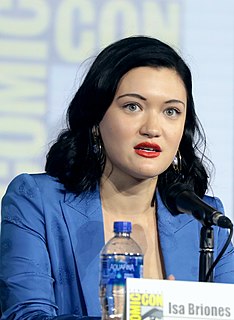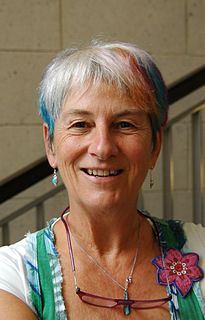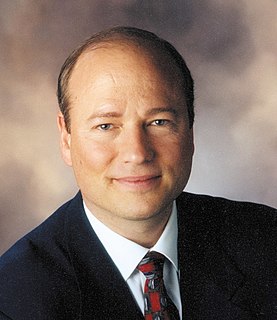A Quote by Allen W. Wood
Fichte would identify all states of our minds with states of our body - perhaps not merely of our brain, but the whole body as an acting organism.
Related Quotes
Jung said there are four archetypes adults go through, and these archetypes are reflected in the development of my work. The first archetype is the archetype of the athlete, reflecting the time in our adult life when our primary emphasis is on our body - what it looks like, how beautiful it is, how strong it is, and so on. We identify ourselves with our body. We are our body. Growing adults next move to what Jung called the archetype of the warrior. We take our physical bodies out there to do what warriors do.
Our brain and our whole nervous system and our whole body are only created in relation to other people and to the environment. So what we have here is an enormously complex notion of both consciousness and unconsciousness. That's why these models get very difficult, because you can't reduce our subjective and intersubjective experience to neural reductions.
The truth about our childhood is stored up in our body, and although we can repress it, we can never alter it. Our intellect can be deceived, our feelings manipulated, and conceptions confused, and our body tricked with medication. But someday our body will present its bill, for it is as incorruptible as a child, who, still whole in spirit, will accept no compromises or excuses, and it will not stop tormenting us until we stop evading the truth.
Realizing that our minds control our bodies while our bodies reflect our minds amounts to understanding the most fundamental aspects of ourselves. It further equals a comprehension of the relationship between our "tools." And since the mind and body are interrelated, this understanding makes it easier to see why coordinating them is a practical way of using these tools to greatest effect-a way of using the mind and body to live our lives as art.
In proportion to our body mass, our brain is three times as large as that of our nearest relatives. This huge organ is dangerous and painful to give birth to, expensive to build and, in a resting human, uses about 20 per cent of the body's energy even though it is just 2 per cent of the body's weight. There must be some reason for all this evolutionary expense.
We have allowed brain thinking to develop and dominate our lives.
As a consequence, we are at war within ourselves.
The brain desiring things which the body does not want, and the body desiring things which the brain does not allow; the brain giving directions which the body will not follow, and the body giving impulses which the brain cannot
Happier thoughts lead to essentially a happier biochemistry. A happier, healthier body. Negative thoughts and stress have been shown to seriously degrade the body and the functioning of the brain, because it's our thoughts and emotions that are continuously reassembling, reorganizing, re-creating our body
The line that I am urging as today's conventional wisdom is not a denial of consciousness. It is often called, with more reason, arepudiation of mind. It is indeed a repudiation of mind as a second substance, over and above body. It can be described less harshly as an identification of mind with some of the faculties, states, and activities of the body. Mental states and events are a special subclass of the states and events of the human or animal body.
We are completely unaware of our true nature because we identify ourselves with our body, our emotions and our thoughts, thus losing sight of our unchanging centre, which is pure consciousness. When we return to our true nature, our thoughts and perceptions no longer appear as modifications of a single substance, they come into being and subside like waves of the ocean.
We need to go back to our relationship with nature and understand that those trees are our lungs. The earth is recycling as our body. The rivers are our circulation. This air is our breath. And the star stuff, the carbon, hydrogen, nitrogen that comes from distant galaxies is actually the molecules of your body.



































